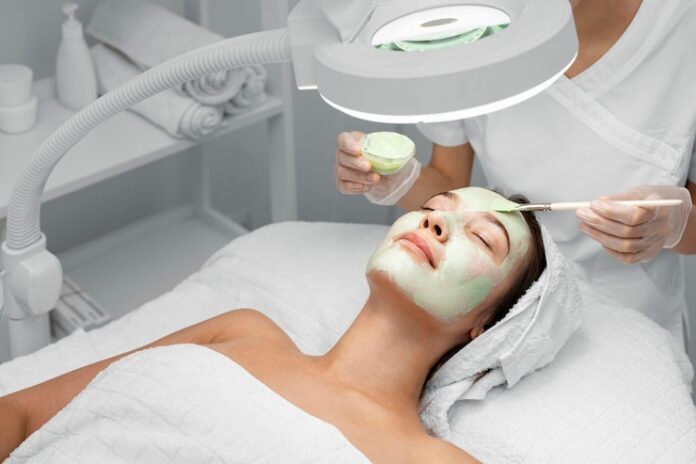Skin whitening treatments have become increasingly popular in recent years, as more individuals seek ways to achieve a brighter, more even skin tone. These treatments can range from topical products to advanced dermatological procedures. However, climate plays a crucial role in the effectiveness of these treatments. Understanding how different weather conditions—such as humidity, temperature, and sun exposure—affect skin whitening treatments can help individuals maintain the results and protect their skin. Skin Whitening Treatment in Dubai, with its unique climate, requires special considerations for optimal results.
Understanding Skin Whitening Treatments
Skin whitening treatments typically aim to lighten skin discoloration, reduce dark spots, and promote a uniform complexion. These treatments can involve various methods, including chemical peels, laser therapies, and topical skin lightening agents. The primary objective is to inhibit melanin production or remove excess melanin from the skin’s surface, resulting in a lighter skin tone.

Impact of Climate on Skin Whitening Treatments
Temperature and Humidity
The climate, particularly in hot and humid regions, can significantly affect the outcome of skin whitening treatments. High temperatures can lead to increased sweating, which may clog pores and cause skin irritation, making it difficult for skin whitening agents to penetrate effectively. Humid environments can also exacerbate skin conditions such as acne, leading to inflammation and hindering the healing process after treatments like chemical peels or laser treatments.
In such climates, doctors often recommend adjusting the skincare regimen to help the skin stay balanced. Humidity can cause excessive oil production, which may interfere with the treatment’s effectiveness. Therefore, regular cleansing and proper hydration are critical to maintaining clear and healthy skin.
Sun Exposure
Excessive sun exposure is one of the primary factors that can counteract the results of skin whitening treatments. Ultraviolet (UV) rays stimulate melanin production, which can darken the skin and lead to pigmentation issues. Individuals undergoing skin whitening treatments should take extra precautions to avoid sun exposure, as it may reverse the effects of the treatment, especially when used with procedures like chemical peels or lasers, which can make the skin more sensitive.
Dermatologists typically recommend wearing sunscreen daily with a high SPF to protect the skin from harmful UV rays. Additionally, avoiding the sun during peak hours, typically between 10 AM and 4 PM, can help maintain the treatment’s efficacy. In regions with intense sun exposure, like Dubai, extra care should be taken to shield the skin after undergoing any skin whitening procedure.
Air Quality
The air quality of a region can also influence the results of skin whitening treatments. Pollution, dust, and environmental irritants can clog pores and irritate the skin, potentially leading to breakouts or inflammation. For individuals in areas with poor air quality, it’s essential to maintain a consistent skincare routine that includes regular cleansing and moisturizing to ensure the skin stays protected.
In regions like Dubai, where desert dust and air pollution can be prevalent, individuals undergoing skin whitening treatments may need to adapt their skincare routine with additional products like anti-pollution serums or creams that provide a protective barrier against environmental damage.
Effect of Climate on Skin’s Sensitivity
Skin’s sensitivity can vary significantly depending on the climate, which directly impacts the healing and effectiveness of skin whitening treatments. In dry, cold climates, the skin tends to become more prone to irritation, redness, and peeling. This can hinder the healing process after treatments like chemical peels or laser therapies, as the skin needs to stay moisturized to recover fully.
On the other hand, in hot and humid climates, the skin may become more prone to sweating and oil production, which can make it more challenging to maintain smooth, even skin. This could impact the effectiveness of the treatment, as excessive oil can interfere with the penetration of skin lightening agents.
Doctor’s Recommendations for Different Climates
Dermatologists play a critical role in tailoring skin whitening treatments to suit the climate. In hot and humid climates like Dubai, doctors often recommend specific precautions and post-treatment care to optimize the results of skin whitening procedures.
Post-Treatment Care
After undergoing a skin whitening treatment, following proper aftercare is essential, especially in regions with extreme climates. Doctors advise their patients to:
- Moisturize Regularly: Using a moisturizer that suits the climate is important to keep the skin hydrated, especially after procedures like laser treatments.
- Use Sunscreen: Wearing sunscreen with a high SPF, even indoors, is crucial to prevent further pigmentation caused by UV rays.
- Avoid Direct Sun Exposure: Limiting sun exposure, especially during peak hours, helps maintain the results of skin whitening treatments.
- Hydrate the Skin: Applying hydrating serums or mists can keep the skin cool and prevent dehydration.
Adjusting Treatment Frequency
In hotter, more humid climates, the frequency of skin whitening treatments may need to be adjusted. For instance, individuals may need more time between chemical peel sessions or laser treatments to allow the skin to heal and avoid excessive irritation. Dermatologists may recommend lighter treatments, such as topical creams, to maintain the effects while minimizing skin stress.
Benefits of Proper Skin Whitening Treatment in Different Climates
When the skin whitening treatment is tailored to the climate, the benefits are clear:
- Enhanced Results: By adjusting the treatment based on environmental factors, doctors can ensure that the skin absorbs the whitening agents effectively, leading to more noticeable results.
- Faster Healing: Proper aftercare tailored to the climate ensures quicker recovery times, especially after more invasive treatments like laser therapy.
- Longer-Lasting Results: Consistent care, including protection from environmental elements, ensures that the results of skin whitening treatments last longer, making them more effective in the long run.
Conclusion
Climate plays a significant role in the success and longevity of skin whitening treatments. By considering environmental factors such as temperature, humidity, and sun exposure, individuals can take the necessary precautions to ensure their treatments are effective. With the help of dermatologists, skin whitening treatments can be adapted to suit various climates, offering a more personalized and beneficial skincare experience. If you’re considering Skin Whitening Treatment, it’s essential to work with a doctor who understands how to adjust treatments based on the unique climate conditions of the region for optimal results.






























